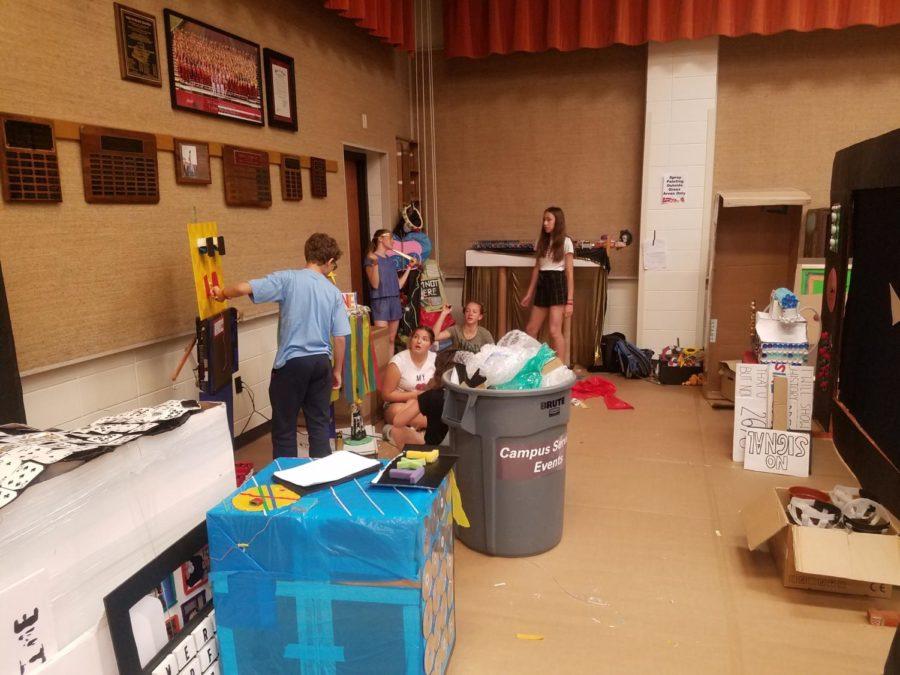Contestants prepare the stage: day one of OOTM prop assembly
May 23, 2018
On the first day of prop assembly at Odyssey of the Mind at Iowa State, a wide variety of projects were underway.
Pawel Czajkowski, the adult supervisor of one team from Poland, said the purpose of the prop assembly was to give teams the ability to get their stage props ready for performances, especially after shipping props long distances.
“We shipped our items from Poland,” Czajkowski said. “Some of it breaks, some of it is missing; this gives us time to rebuild some of those lost items. This is normal.”
The performances he is talking about include one that is spontaneous and one that includes props.
The spontaneous performance is a creative problem solving question that judges choose randomly. The question could be exclusively verbal, hands-on or a mixture of both.
“A hands on question could be something along the lines of ‘build a tower this high with an assortment of pieces from the judges,'” said Brian Winn, a member of a team from California. “We were once given a shipping bag filled with air and told to make a story out of it. That could be an example of a hands on verbal problem.”
Winn is performing in the section called “Emoji/Speak for Yourself,” where contestants are given certain requirements that their performance will then be judged on.
Winn’s group is adapting “The Little Prince,” a 1943 French novella with emojis to modernize the story and hopefully, in the judges eyes, look creative enough to do well in the competition.
Anastasia Gusto, a member of a New York team who drove all of their props to Ames, was excited to share what her team had done.
“His name is Omer,” Gusto said pointing at a human sized raccoon they had built. “We built him with pipes, tape and painted him all around.”
According to Gusto, the group can’t talk in their performance, they have to show growth of characters and someone has to “transform.”
“We are going to walk into that giant phone we made and transform into different emojis,” Gusto said. “Then we are going to use the poop emoji to help the plants grow, and later, I will transform into a unicorn.”
Richard Pereira, another adult supervisor, said the rules make it so the kids put all of the props together and come up with their performances themselves.
“The more creative the better,” Pereira said. “We are just here to help guide them along the way.”
Pereira’s group came up with a performance about the theme of “a stellar hangout.” Their skit, called “Universal Yoga,” includes a person who does such a complicated yoga pose they are teleported to a land of aliens where the performer proceeds to teach aliens yoga.
Eventually the kids make it back to Earth with realizing everyone has problems — even aliens.
Pereira says he was amazed with some of the things his kids came up with; one person even called the complex yoga pose “yoga-kinesis,” named after telekinesis or the ability to move things with your mind.
















